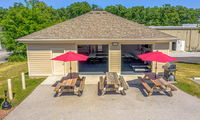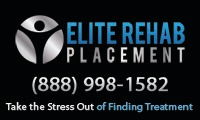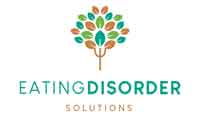Alcohol Use Disorder Treatment

Although drinking alcohol has become a normalized behavior, the National Institute on Alcohol Abuse and Alcoholism (NIAAA) has reported that more than 16 million people are actually struggling with alcoholism. There are many risks associated with alcohol addiction, including DUIs, legal problems, erratic behavior while drinking, loss of relationships and even physical health problems.
But how do you know if your drinking has become an addiction? Here are the signs:
- Increased tolerance. Over time, you might notice you've developed a higher tolerance for alcohol use and that you need to drink more and more to become intoxicated or buzzed. You might even notice you're drinking the same amount of alcohol, but aren't experiencing the same effects anymore.
- Withdrawal. When you stop drinking, you may notice signs of withdrawal which can range from mild to severe, including symptoms such as shaking, vomiting or delirium. You might start drinking again to relieve the symptoms of withdrawal.
- Increased alcohol use. You may be drinking in larger amounts or for a longer period of time than intended.
- A desire to stop drinking. You might notice you want to cut down, control or quit drinking but have been unable to do so.
- Time spent thinking about alcohol. You might spend excessive time thinking about drinking, working on obtaining alcohol or planning drinking events. You may also start to notice you're spending a lot of time recovering from a hangover or night out.
- Letting go of important things in life. You may become unable to follow-through with obligations at work, school or home due to excess drinking – like not showing up for work, missing class, or experiencing interpersonal problems with family members.
- Continued alcohol use. A key sign of alcohol addiction is continuing to drink despite experiencing negative effects or consequences, whether they're interpersonal, legal or health-related.
The National Institute on Alcohol Abuse and Alcoholism states that if you've been experiencing any of the above symptoms, you may be struggling with alcoholism. To get started on your recovery journey, consider contacting a treatment center, therapist or psychiatrist for a chemical use assessment or evaluation to see if treatment is right for you.
Treating Alcohol Addiction
If you or a loved one is struggling with alcohol addiction, help is available. Alcoholism can be treated through recovery – an ongoing process of restoring health to the body and mind, while achieving personal health without the use of alcohol.
There are many treatment options for substance use disorder, and if you're struggling with alcohol addiction you may consider finding a treatment center that focuses specifically on alcoholism. While any and all treatment for addiction is beneficial, alcoholism represents a significant part of the addiction breakdown in the United States. Of the 22.5 million people estimated to have a substance use disorder, approximately 16 million people have an alcohol use disorder. Additionally, according to the National Institute on Drug Abuse (NIDA), more than 23 percent of people entering public treatment centers report alcohol abuse or addiction.
Alcohol rehab centers present significant benefits to people seeking treatment. While exact effectiveness or success rates are hard to measure and often vary, many people find recovery through a formal treatment program. By working with a counselor, group therapy program, or other treatment program, people often experience many benefits like repaired relationships, better physical health, improved coping skills and sustained sobriety, NIDA states on their website.
Treatment Options for Alcoholism
If you're ready to get help for alcohol addiction, there are different paths to recovery you might consider:
- Detox. If you've been drinking excessively, it's common to have developed a high tolerance to alcohol, which introduces the risk of withdrawal. As you start your treatment journey recovering from alcoholism, you may be recommended to attend a detoxification center, which can last anywhere from one day to one week. A detox program can help you safely detox from alcohol, while reducing the symptoms of withdrawal so you can start your next step in recovery, whether it be a residential or outpatient treatment program.
- Residential treatment. Depending on the severity of your alcohol use, you may be recommended to attend a residential treatment facility. In a residential program, you will stay at the treatment center for an extended period of time, usually ranging 30 to 90 days or even 6 months to a year. Through residential treatment, you'll learn coping skills to help you stay sober, while examining the underlying reasons for drinking.
- Outpatient treatment. Unlike a residential treatment facility, outpatient treatment centers facilitate group therapy and individual counseling without requiring that you reside at a specific facility. In outpatient treatment, you will attend weekly group sessions – usually between one to four times per week – where you'll explore concepts of transitioning into a sober life without alcohol.
- Aftercare. No matter what kind of treatment center you attend, recovering from alcoholism takes time. Attending an aftercare program can help you maintain long-term sobriety and might include groups or programs ranging from once per month to once per week.
Cost of Alcohol Rehab Centers
The cost of treatment for alcoholism will vary depending on the facility, but you can expect a treatment program to cost anywhere from $2,000 to $25,000. Factors that may contribute to the cost include board and lodge, group programming, treatment for co-occurring disorders, medical fees, and more.
Here's a better look:
-
Detox:
This may cost between $250 to $1,000 per day depending on the setting (independent detox center, emergency room, hospital, etc.)
-
Residential Treatment:
Inpatient rehab could cost between $2,000 to $25,000 depending on the length of stay and type of program.
-
Outpatient Treatment:
Day programs may cost between $0 to more than $10,000 depending on program length, frequency and program type.
Although it may seem expensive, remember, the benefits of treatment are many – finding recovery, cost savings by cutting out alcohol use, mental clarity, better health and more.
As you research treatment costs, contact your local county office or insurance provider. Many states have an alcohol and drug treatment fund that can help subsidize the cost of rehabilitation.
Choosing An Alcohol Rehab Center
Of the many treatment options available, how do you choose a program that will work for you? It might seem overwhelming at first, but taking the time to look at reviews, program offerings, costs and program philosophy will make your experience more positive in the long-run.
Here are a few things to consider as you select an alcohol addiction treatment program:
- Look at the program philosophy. Is the treatment center based on the twelve steps? Do they use a specific curriculum? Take time to read through the treatment center's website to see how your values align. It's your journey – make sure it feels like a good fit.
- What amenities do they offer? Amenities will vary based on the type of program and can include gym facilities, yoga classes, wellness programs, meditation, cognitive-behavioral therapy and more.
- Have you had a chemical use assessment? A chemical use evaluation will give you a clinical recommendation to a specific type of treatment – detox, outpatient or residential treatment – while considering other factors of your health, like mental health, learning disabilities and medical diagnoses.
If you're struggling with alcohol addiction, always remember help is available. Through the right program and a commitment to staying sober, you can start your recovery journey to restore your health and find positive coping skills to help you stop drinking.










